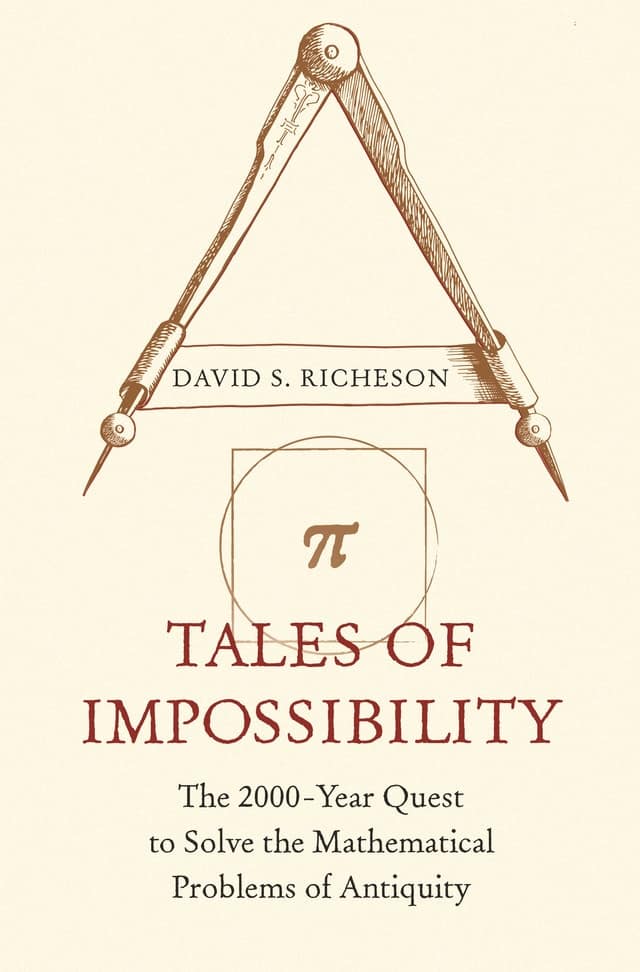“Tales of Impossibility tells the fascinating tale of the four most well-known and extensively researched mathematical problems in history, the so-called difficulties of antiquity. These compass and straightedge problems—squaring the circle, trisecting an angle, doubling the cube, and inscribing regular polygons in a circle—were initially presented by the ancient Greeks and have since been a constant source of inspiration for mathematicians. David Richeson traces the history of these puzzles to demonstrate how, in the end, the proofs of their difficulty to be solved with just a compass and straightedge depended on and contributed to the development of mathematics.
Richeson examines the efforts made by illustrious figures like Euclid, Archimedes, Viète, Descartes, Newton, and Gauss to comprehend the issues of antiquity and the numerous significant mathematical breakthroughs that were connected to these inquiries. Even if the issues had a geometric foundation, solving them required the development of real and complex number theory, analytic geometry, algebra, and calculus, which didn’t happen until the nineteenth century. Ferdinand von Lindemann and a little-known mathematician named Pierre Wentzel eventually came to the conclusion that the issues could not be resolved. Along the way, Richeson shares amusing anecdotes regarding the riddles, such as how the Indiana government approved a measure that fixed the value incorrectly and how Leonardo da Vinci elegantly contributed to the puzzles.
Tales of Impossibility explains how four intractable issues have fascinated mathematical thought for millennia by taking readers from the ancient era to the present.”







